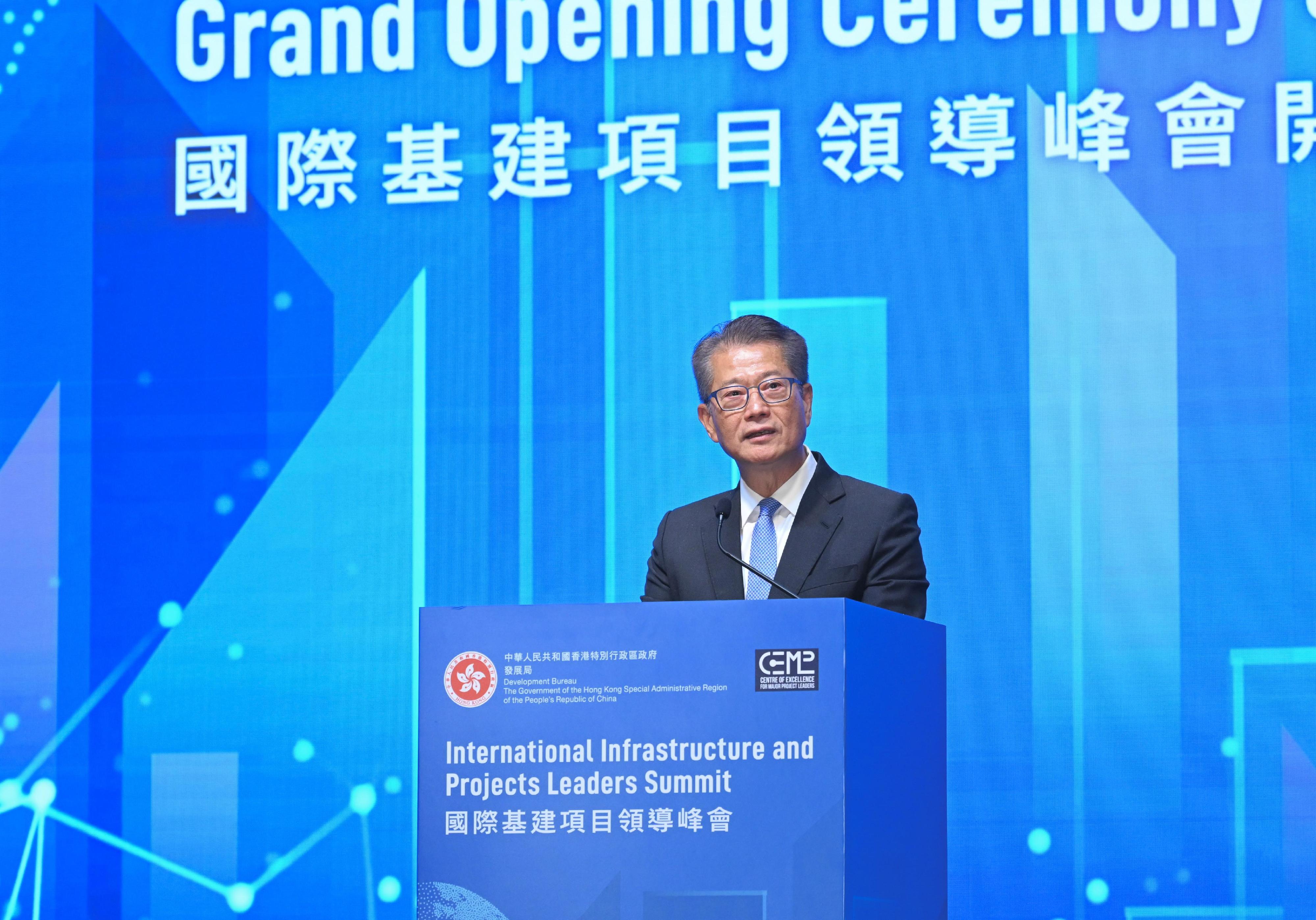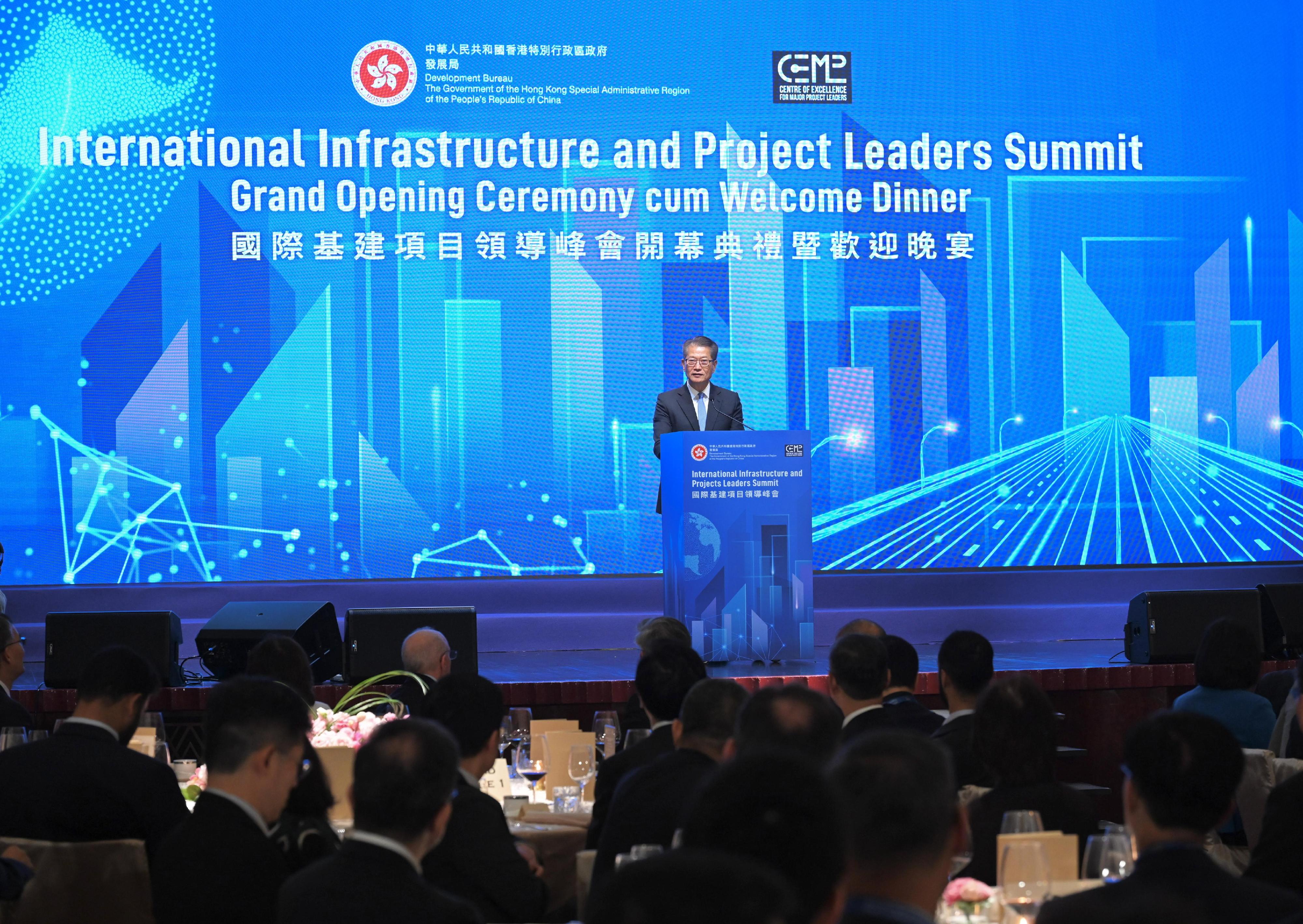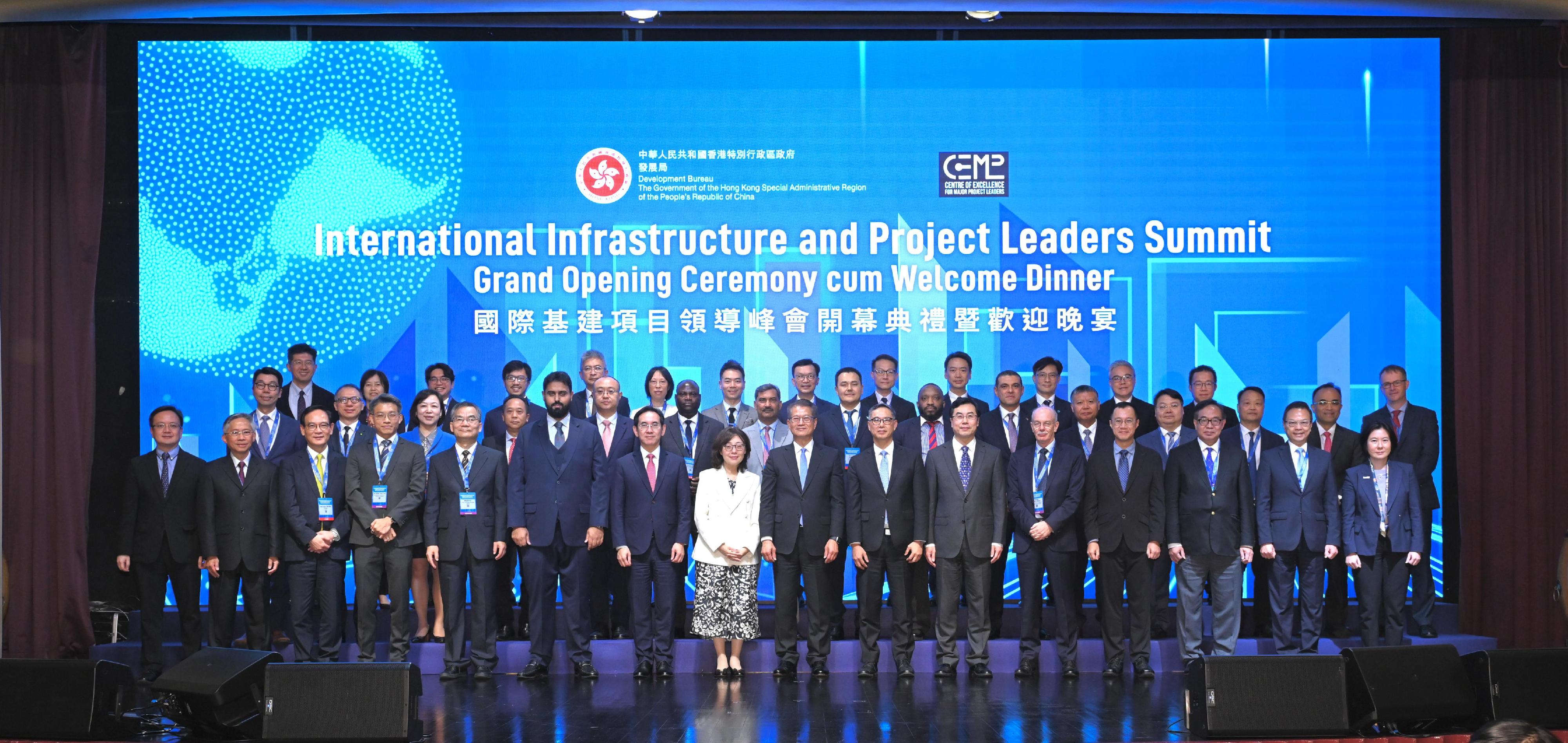Speech by FS at Grand Opening Ceremony and Welcome Dinner of International Infrastructure and Projects Leaders Summit (English only) (with photos)
Following is the speech by the Financial Secretary, Mr Paul Chan, at the Grand Opening Ceremony and Welcome Dinner of the International Infrastructure and Projects Leaders Summit today (November 14):
�良生副部長 (Vice Minister of the Ministry of Water Resources Mr Li Liangsheng), Consul-Generals, distinguished guests, ladies and gentlemen,
Good evening. It is a great pleasure to welcome you to the inaugural International Infrastructure and Projects Leaders' Summit.
This three-day event brings together some 500 infrastructure leaders and experts from around the world. All of you are here to share the wealth of your experience, and valuable insights, in infrastructure development.
Global infrastructure development: challenges and opportunities
Infrastructure is the lifeline of an economy. Globally, however, infrastructure developments are grappling with challenges. One of them is the impact of climate change and extreme weather. That calls for enhancing the climate resilience of infrastructure projects through incorporating more effective designs and more advanced risk-detection technologies.
Another example is the funding gap. Estimates suggest that the global infrastructure financing gap is about US$15 trillion through 2030, with emerging markets and developing economies suffering the most.
While these challenges may seem daunting, there is much we can do to address them, creating opportunities for innovative solutions and new business ventures. Hong Kong, let me say, is your valuable partner in this regard.
Hong Kong's value
Indeed, Hong Kong has long been recognised for its infrastructure prowess. Not only do we deliver infrastructure projects with quality, we have also earned a global reputation for running and managing them.
The Airport Authority of Hong Kong and the MTR Corporation Limited are good examples. The two institutions have expanded worldwide, assisting Chinese Mainland and overseas partners in building and operating their wide-ranging facilities.
We are also committed to driving innovation in infrastructure development. The Hong Kong SAR (Special Administrative Region) Government, for example, has taken the lead in integrating applied R&D (research and development) into public works projects, and formed a task force to that end. And, in August this year, we established the Building Technology Research Institute to lead innovation in construction, including materials, methods and technologies, as well as developing standards.
Speaking of innovation, Hong Kong is home to over 4 200 start-ups, many of them engaged in contech, proptech, greentech, IoT (Internet of Things), and more. They offer diversified solutions that enhance the safety, efficiency and sustainability of infrastructure development.
There's more. As an international financial centre, Hong Kong can help match quality projects with funding, supporting regional and global infrastructure development. Apart from providing a full range of funding options, we are also dedicated to applying innovative financing strategies to support infrastructure projects.
That includes, for example, securitisation of infrastructure loans, which is basically packaging mature, brownfield projects as an asset class for investors in need of stable returns, and thereby freeing up capital for greenfield projects. Over the past two years, we have arranged two batches of such loans, amounting to US$800 million and involving more than 50 projects in the Global South.
Concluding remarks
Ladies and gentlemen, as the Chinese saying goes, "It is difficult for one to act alone, but easy when many walk together" (å¤èˆ‰è€…難起,眾行者易趨). I am confident that this Summit will initiate inspiring discussions, foster collaboration and create partnerships to make an impact on the future of infrastructure – for the benefit of us all.
Finally, I wish you a rewarding Summit and an enjoyable stay in Hong Kong. Find time to appreciate our dynamic cityscape, East and West cultures, and all that this Asia's world city has to offer you.
Thank you.


